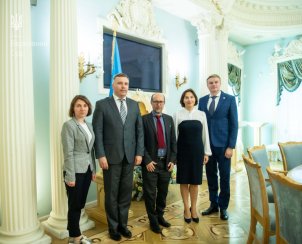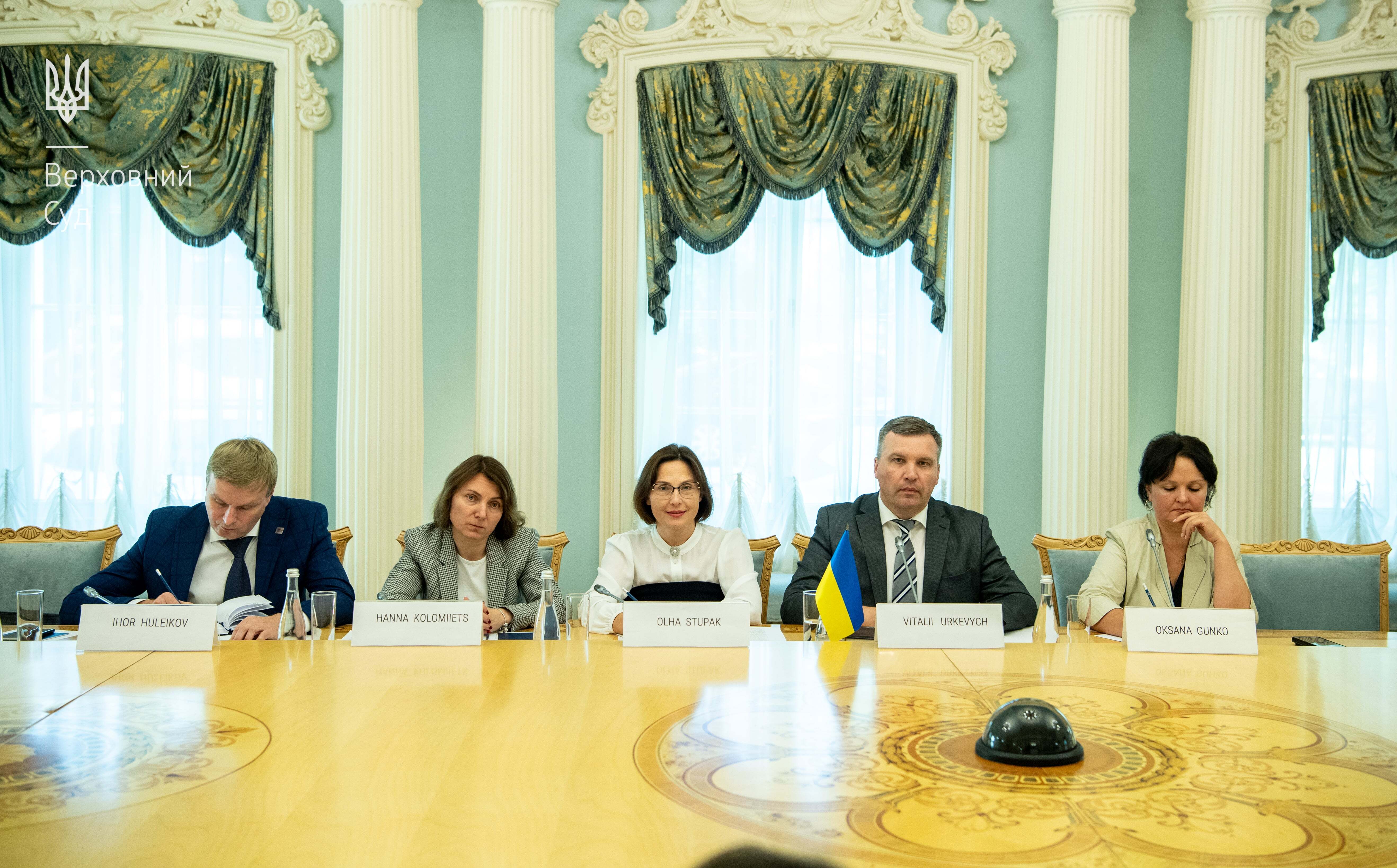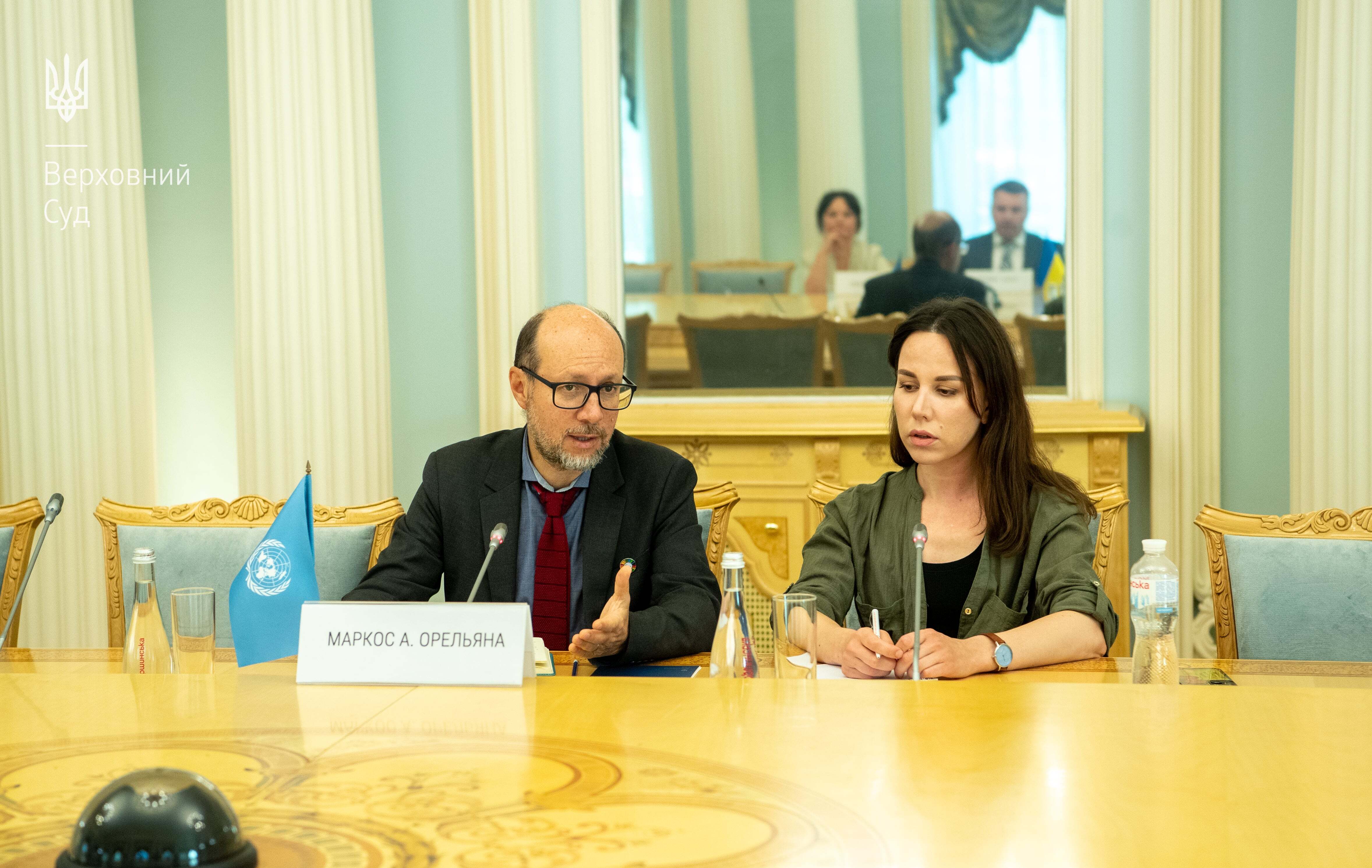Contact center of the Ukrainian Judiciary 044 207-35-46

Environmental pollution as a result of hostilities, the use of munitions, damage to chemical industry facilities and violations of fundamental human rights as a result of the activities of the aggressor state. This was the subject of a meeting between Vitalii Urkevych, Secretary of the Grand Chamber of the Supreme Court, and judges of the Supreme Court, and Marcos Orellana, UN Special Rapporteur on Toxics and Human Rights, an expert in international law, human rights and environmental law.
The Special Rapporteur, Marcos Orellana, stressed that people's exposure to hazardous toxic substances can threaten their fundamental rights, namely the right to a safe life and the right to health.
Mr. Marcos Orellana explained that as part of his mandate, he collects information on environmental damage caused by military operations and is currently working on a thematic report on the negative environmental impact of armed conflicts. This report will be published in mid-2025.
 |
 |
The Secretary of the Grand Chamber of the Supreme Court, Vitalii Urkevich, said that according to the Ministry of Environmental Protection and Natural Resources of Ukraine, the damage caused by the Russian Federation as a result of the hostilities on the territory of Ukraine exceeds 55 billion euros. However, this amount is not final, as the full extent of the damage can only be assessed after the liberation of all Ukrainian territories within the 1991 borders.
Olha Stupak, Judge of the Grand Chamber of the Supreme Court, noted that today Ukraine's efforts are focused on recording the damage and losses caused. The recorded facts should become a solid evidence base that will be used in the process of bringing Russia to justice for environmental crimes. At the same time, a large part of Ukraine is still unmined and the areas where active hostilities took place, including the fields where crops were grown, will not be usable for a long time.
Hanna Kolomiiets, Judge of the Civil Cassation Court of the Supreme Court, stated that the main burden of considering cases of ecocide (Article 441 of the Criminal Code of Ukraine) would fall on national courts. Depending on how the evidence is collected and how the cases are considered by the national courts, the guilt of the aggressor state in committing crimes against the environment in Ukraine (by its officials and military personnel) will be proven in the International Criminal Court. They can be investigated by the ICC as war crimes, and their qualification is possible under subparagraph iv, paragraph b, part 2, Article 8 of the Rome Statute of the ICC.
Ihor Huleikov, Judge of the Civil Cassation Court of the Supreme Court, stressed that the Supreme Court is the guarantor of the rule of law and plays a key role in ensuring justice for victims of environmental crimes. 'That is why international experience is so important to us. We want the international community to be aware of the scale of environmental crimes and to take action to bring perpetrators to justice. International experience is invaluable in developing mechanisms for the legal assessment of these crimes and ensuring compensation for damages,' the judge concluded.
The meeting was also attended by Oksana Hunko, Chief Specialist of the Division for International Cooperation of the Supreme Court.